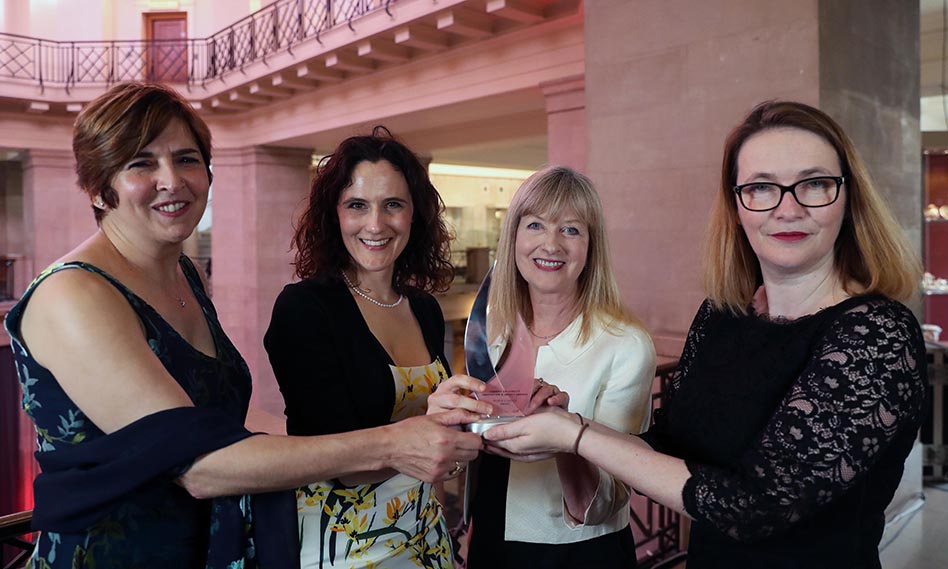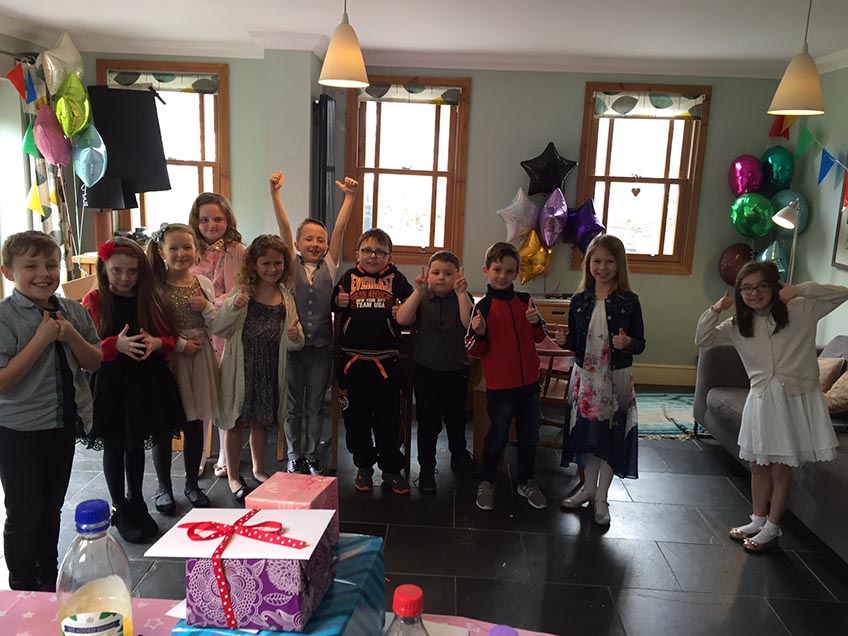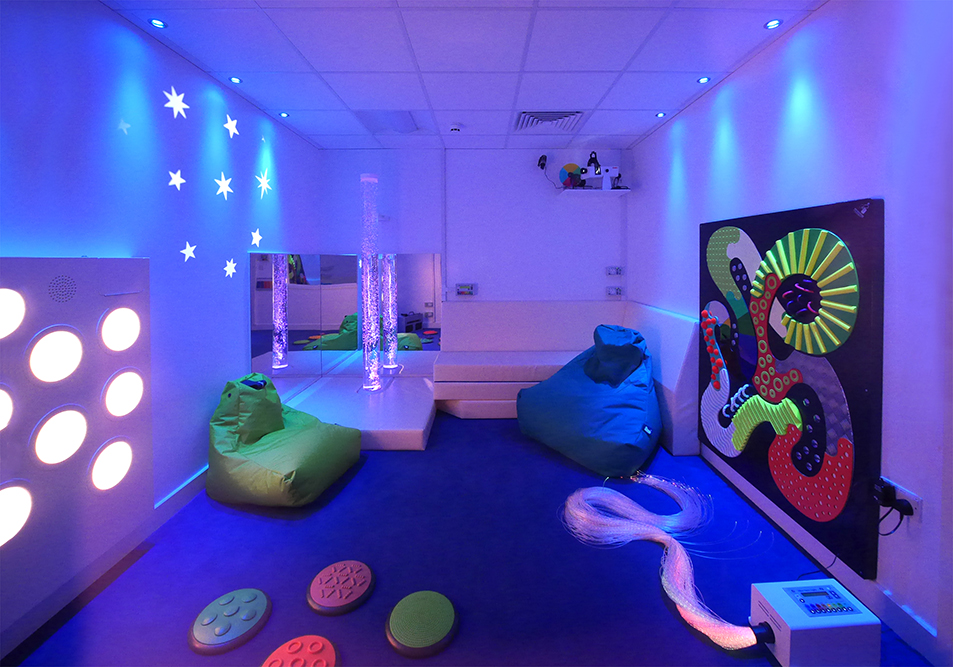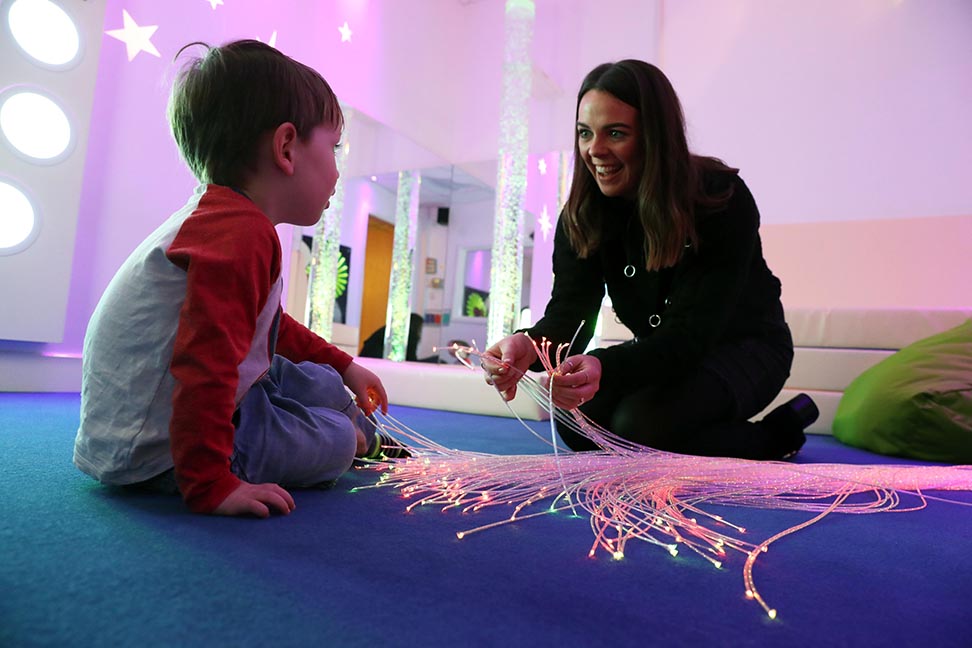Wales Autism Research Centre: Celebrating 10 years of success
10 March 2021The Wales Autism Research Centre (WARC) has been at the heart of important policy and practice for the past 10 years, providing data that can be translated into action and that has a real impact on professionals working within the autistic community. WARC’s past and present directors meet up to reflect on its achievements and look ahead to the next 10 years.
WARC was launched in 2010 by Director Professor Sue Leekam and was the first national centre for autism research in the UK.
It was initiated by Autism Cymru and Autistica, the School of Psychology, Cardiff University and the Welsh Government, and was supported by generous donations from Autism Initiatives, Baily Thomas Charitable Fund, Waterloo Foundation, Jane Hodge Foundation, Research Autism, Freemasons Grand Charity and Cardiff University
Since 2019, the centre has been in the hands of Dr Catherine Jones who has continued its work along with an amazing team of academics and PhD students. Sue and Catherine reunited virtually to reflect on the past 10 years.
Setting up WARC
Sue: I arrived on the scene in 2009 and the funding for the centre was already in place thanks to an amazing fundraising initiative by charities Autism Cymru and Autistica, who worked in coordination with Prof Dylan Jones, Cardiff University. It was an exciting and innovative enterprise and the key individual driving it was Hugh Morgan, the CEO of Autism Cymru and previous expert autism advisor to the Welsh Government, advising in the setting up the Strategic Action Plan for Autism, which was the first of its kind in the UK. As an innovative aspect of this, the Welsh Government included the autism research centre as part of the strategy.
It was an interesting position for myself, as an academic, to be involved in these different worlds of policy and practice. It was a fantastic challenge and I absolutely loved all of it.
Successes and highlights
Catherine: For me personally, the work with Welsh Government in which we translated our research into practice has been a real highlight. Raising awareness is part of the Strategic Action Plan for Autism and through our collaboration, we’ve been able to meet some of those needs.
We identified really important signs of autism that are evidence-based and put them into a film called The Birthday Party, to help professionals and parents understand more about autism. In it, you learn about the signs of autism and the varied way in which these signs present themselves. That film has taken off beyond our expectations and we’ve had over 170 requests from organisations around the world asking to use the film in their training. It’s been translated into six languages and has been played more than 83,000 times. It’s fantastic to feel that we’re providing the government with evidence-based tools.
Sue: This has been such a triumph because we’re not policy researchers, we’re psychologists. We work in a specialised field and being able to make a bridge to both policy and practice has enabled us to bring our academic subject into the mainstream and to be recognised. That’s been achieved by developing relationships that have been ongoing.
Sue: WARC hasn’t just been a ‘flash-in-the-pan’ project – we are proud of its long term contribution to the community. Our current team of staff and students is currently engaged in many new research developments and connected with the government’s new National Autism Team. We also have connections with Cardiff University’s Neurodevelopment Assessment Unit (NDAU) and to policy development relating to the neurodevelopmental pathway (NHS Wales policy development).
Catherine: Within NDAU we have a sensory room and, as far as we’re aware, we’re the only research centre that has a purpose-built multisensory environment where we can do research. It was gifted to us by Mike Ayres Design, a company that recognised evidence-based research is important to guide practitioners. We’ve been looking at how autistic children use sensory rooms and that’s a really innovative part of what we do.
Sue: Over the past decade, there has been lots of wonderful, serendipitous moments and our relationship with Latvia is one of them. A parent of an autistic child set up a charity in Latvia and she came and visited our centre to learn about what we were doing. She also attended a WARC parent conference in Cardiff and was so impressed that she went back to Latvia and set up a similar conference and also set up new links with our Welsh Local Government Association partners.
Catherine: This connection led to a research collaboration and we’ve published data on Latvian parents’ self-report of their children’s behaviours. There hadn’t been any published data on the profile of autistic children’s behaviours in Latvia, so it’s been really special to produce that work.
Impact on the community
Catherine: We’re trying to understand autistic people better, understand their strengths and their challenges. Better understanding is key to bringing about positive change. It’s about building up layers of research and working with other teams in collaboration.
Sue: The birthday film has helped parents to go to GPs and articulate what behaviours they’re seeing in their child. It’s an empowering film for the community. Healthcare professionals and school professionals are now equipped with better knowledge on what autistic people might be thinking and feeling. They have a better awareness and can adapt their methods or rethink their strategies to allow for a better outcome.
Hopes for the future
Catherine: I think WARC needs to respond to how things are moving, which is away from categorisation and towards recognising that autistic people are more than a diagnosis. It’s about understanding the complexity of the experience of what it is to be autistic. Very much aligned with this, is the importance of including autistic people within the research process, and not just as participants. We have been developing a questionnaire in consultation with autistic people. It’s been a fascinating process and WARC has a commitment to increasing the co-production of its research moving forward. We also want to maintain a strong reputation for collaboration, and this includes working with world-leading centres at Cardiff University including NDAU and the Centre for Artificial Intelligence, Robotics and Human-Machine Systems (IROHMS). Working with colleagues who see things from a different perspective can be incredibly energising and help produce innovative research, which ultimately enables us to best help support autistic people and their families.
- January 2026
- November 2025
- September 2025
- July 2025
- June 2025
- May 2025
- April 2025
- March 2025
- February 2025
- January 2025
- October 2024
- September 2024
- August 2024
- July 2024
- June 2024
- May 2024
- April 2024
- March 2024
- February 2024
- January 2024
- December 2023
- November 2023
- October 2023
- September 2023
- August 2023
- July 2023
- June 2023
- May 2023
- April 2023
- March 2023
- February 2023
- January 2023
- November 2022
- October 2022
- September 2022
- August 2022
- July 2022
- June 2022
- May 2022
- April 2022
- March 2022
- February 2022
- January 2022
- December 2021
- November 2021
- October 2021
- September 2021
- August 2021
- July 2021
- June 2021
- May 2021
- April 2021
- March 2021
- February 2021
- January 2021
- December 2020
- November 2020
- October 2020
- September 2020
- August 2020
- July 2020
- June 2020
- May 2020
- April 2020
- March 2020
- January 2020
- December 2019
- November 2019
- October 2019
- September 2019
- August 2019
- July 2019
- May 2019
- April 2019
- March 2019
- February 2019
- January 2019
- December 2018
- November 2018
- October 2018
- September 2018
- August 2018
- July 2018
- June 2018
- May 2018
- April 2018
- March 2018
- February 2018
- December 2017
- November 2017
- October 2017
- September 2017
- August 2017
- July 2017
- June 2017
- May 2017
- April 2017
- March 2017
- February 2017
- January 2017
- November 2016
- October 2016
- September 2016
- July 2016
- June 2016
- May 2016
- April 2016
- March 2016
- February 2016
- January 2016
- December 2015
- November 2015
- October 2015
- September 2015
- August 2015
- January 2015
- December 2014
- November 2014
- September 2014
- August 2014
- May 2014



